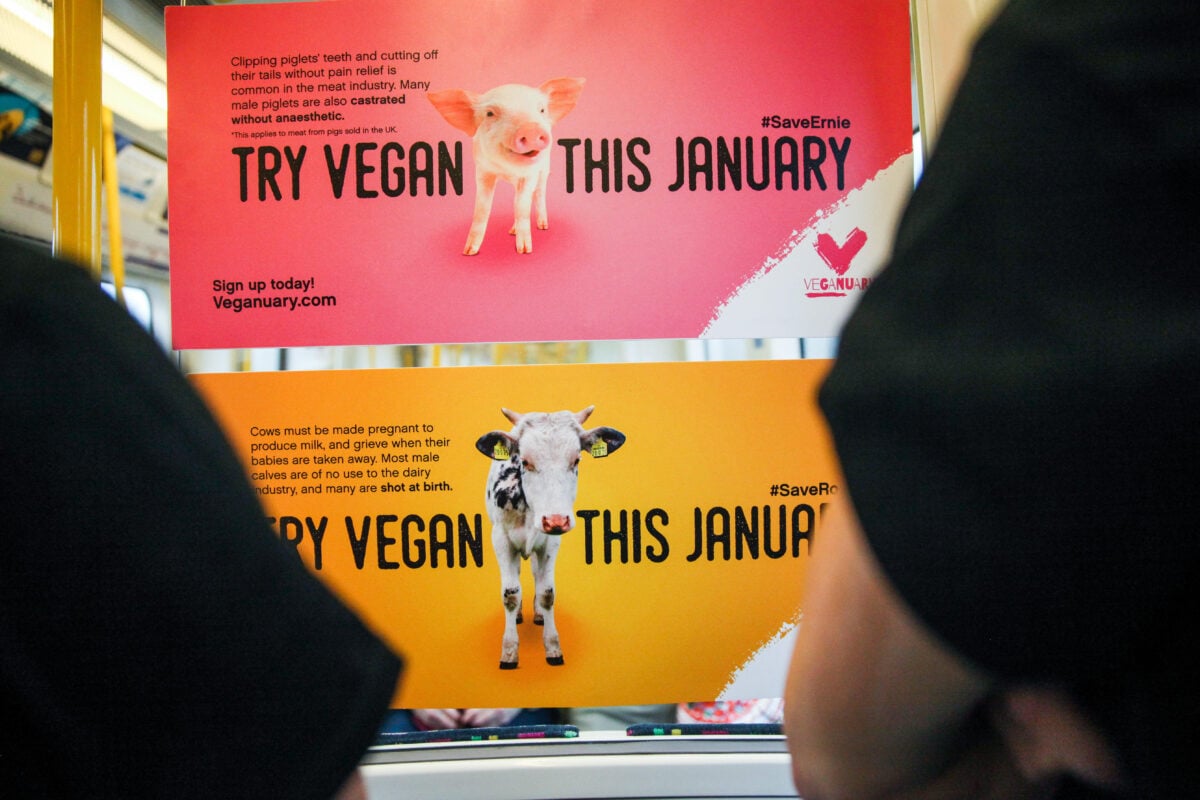A new study looking into the long-term results of initiatives such as Veganuary and Dry January has found that the month-long abstinence from meat, dairy, and eggs for the former, and alcohol for the latter, results in permanent dietary and lifestyle changes being more likely.
Veganuary is a non-profit organization that has participants sign up to try a plant-based diet 31 days in the month of January. Starting in 2014, the initiative quickly grew to the point where millions have taken part. It is gradually becoming a global movement, with restaurants and supermarkets participating by launching new Veganuary products and menu options. Dry January was started by Alcohol Change UK in 2013. It has now become mainstream, and is endorsed by Public Health England.
Read more: Veganuary ‘Reaches 25 Million People’ In 2024
The new study, which comes from the University of Exeter and is published in the Frontiers in Nutrition journal, found that some Veganuary participants have a shift in their identity as meat-eaters after a month of not consuming animal products, and their disgust towards practices in the animal agriculture industry and meat itself also increases. Similarly, those taking part in Dry January are more likely to reduce their alcohol consumption overall or give it up entirely.
Veganuary changes habits

Natalia Lawrence, an associate professor of psychology at the University of Exeter, said of the study: “Normally, the idea is to educate people first to change their attitudes, and hopefully they end up changing their behavior. But if you persuade people to change their behavior for a month, it seems that these things follow.”
Toni Vernelli, Veganuary’s head of communications, said the Veganuary team are pleased about the results of the study, adding: “At the end of their Veganuary pledge, more than 80 percent of participants tell us they plan to permanently reduce their meat and dairy consumption by at least 50 percent.”
Read more: 9 In 10 Brits Acknowledge Farmed Animals Feel Emotions Like Cats And Dogs
Lawrence has conducted several studies into Veganuary at Exeter with other PhD researchers, including Sophie Hearn, with funding from the Medical Research Council. The team are planning to conduct fresh research for January 2025, again looking at Veganuary and Dry January.
“We know that identity strongly shapes food choices, so by encouraging participants to view themselves as individuals who reduce or avoid meat, Veganuary may pave the way for lasting, positive changes in dietary habits,” Hearn said.
Lawrence added that taking part in Veganuary seems to help people address cognitive dissonances between their beliefs and behaviors around animals and meat-eating.
“Most people think it’s wrong to be cruel to animals, and [large amounts] of meat in the UK is produced in factory farms, which something like 75 percent of UK adults agree should be banned. So most people are not acting in line with their values when they’re eating meat. But what research suggests is that they either avoid thinking about it, or they tell themselves that the animals were well treated, or that you have to eat meat to be healthy.”
Read more: More Than A Quarter Of Veganuary 2024 Participants Are Still Vegan






